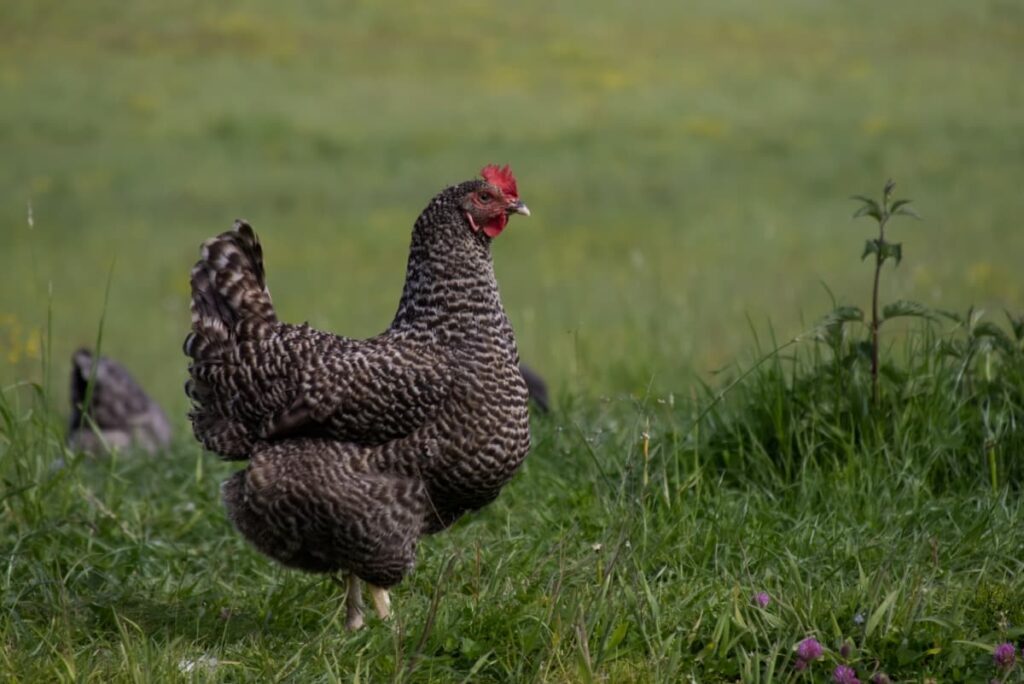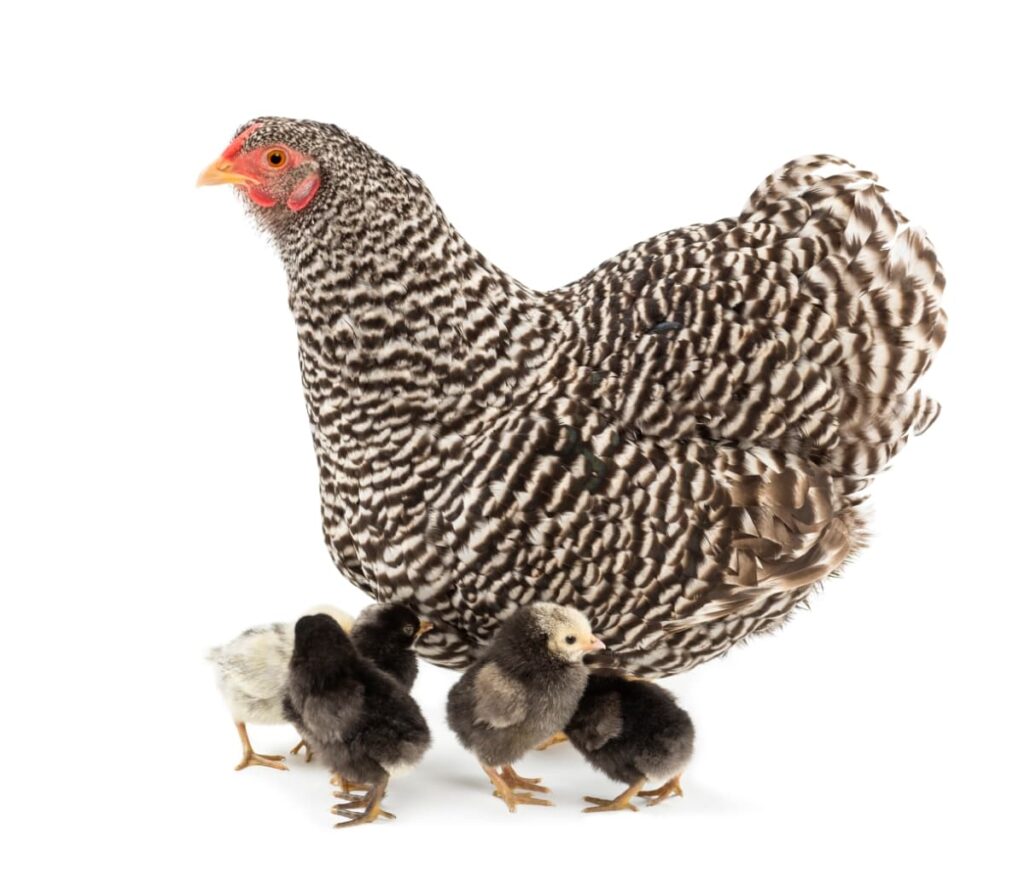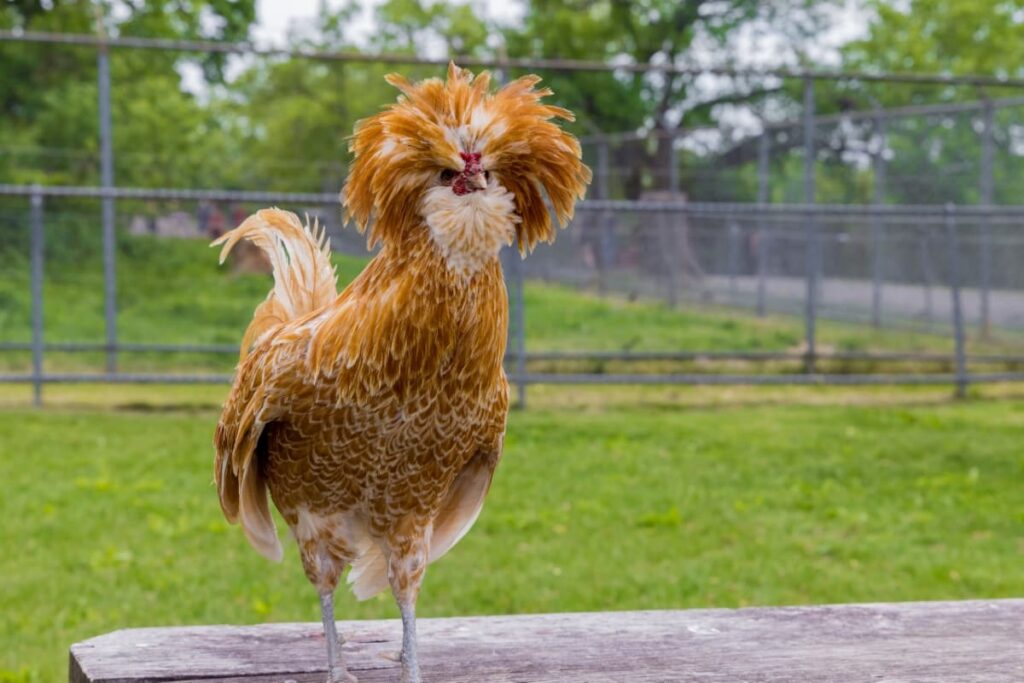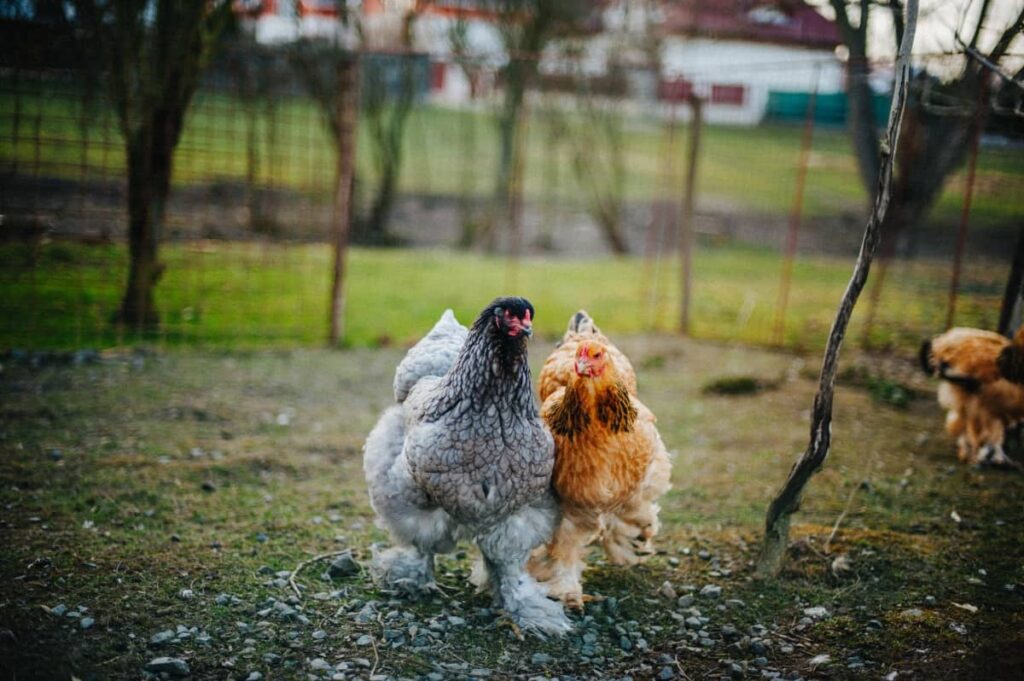Chickens are not just farm animals anymore; they have become popular pets for many people around the world. Pet chickens require care and attention just like any other pet. They need proper housing, feeding, healthcare, and socialization to thrive in a domestic setting. These feathered friends are known for their unique personalities, entertaining antics, and ability to form strong bonds with their human caretakers. They provide a constant source of fresh eggs. Pet chickens also offer great pest control for your garden.

My Pet Chicken
Choosing the Right Breed
Factors to Consider (Size, Climate Adaptability, Temperament): One factor to keep in mind is the size of the breed. Some chickens, like bantams, are smaller in size and require less space than larger breeds. Different breeds have different tolerance levels for extreme weather conditions. If you live in a hot or cold climate, it’s essential to choose a pet chicken breed that can withstand those temperatures.
Temperament also plays a role in choosing the right chicken breed for your needs. Some breeds are known for being docile and friendly, making them great pets for families with children. Other breeds may be more independent or even prone to aggression.
Popular Breeds for Pets: The best breeds suitable for raising as pets are Silkies, Orpingtons, Australorps, Rhode Island Reds, Sussex, Cochins, etc. Each breed has its unique characteristics and attributes that make them suitable for different situations. The best breed will depend on your personal preferences as well as any specific requirements you may have regarding pet chicken egg production or climate adaptability.
Setting Up Your Chicken Coop
Essential Elements of a Coop: Firstly, you’ll need ample space for the number of chickens you plan to keep. Aim for at least 4 square feet per bird inside the coop and even more if they will spend most of their time confined. Ventilation is another crucial element to include in your coop design.
Tips for DIY Coop Building: Building your chicken coop can be a rewarding experience. Not only does it save you money, but it also allows you to customize the coop to meet specific needs. Before diving into construction, take some time to plan out the design and layout of your coop. Consider some important factors such as size, ventilation, and accessibility for cleaning. Invest in sturdy materials that will withstand weather conditions and predators.
Feeding Your Chickens
Nutritional Requirements: Chickens have specific nutritional requirements that need to be met for them to thrive. Their diet should consist of a combination of grains, proteins, vitamins, minerals, and water. The exact proportions will change based on the age and breed of your chickens. Grains such as corn and wheat are a staple in their diet as they provide energy.
Safe and Unsafe Foods: When it comes to safe foods, fresh fruits and vegetables are a great addition to your chicken’s diet. Some examples are leafy greens like spinach or kale, as well as cucumbers or watermelon. On the other hand, there are certain foods that you should avoid feeding your chickens. These include anything high in salt or sugar, such as processed snacks or candy. Avoid giving them anything toxic, such as chocolate, avocado, onions, or garlic. Also, avoid feeding pet chickens too many treats or scraps from the kitchen, as this can lead to an imbalanced diet.
Health and Wellness
Common Health Issues in Chickens: One common issue among chickens is respiratory infections. Bacteria or viruses can cause these and can lead to symptoms like coughing and difficulty breathing. It’s important to keep your coop clean and well-ventilated to prevent the spread of respiratory diseases. Other concerns for chicken owners are parasites, digestive problems, and injuries are frequent occurrences when raising backyard chickens.
Regular Health Check-ups and Vaccinations: During a routine health check-up, a veterinarian will examine your chickens to assess overall pet chicken health. These examinations help identify any underlying problems that may not be noticeable at first glance.
In case you missed it: How to Raise Kikiriki Chickens: Origin, Behavior, Care, and Breed Information

Vaccinations are an important part of pet chicken care as they provide immunity against common diseases such as Marek’s disease or Newcastle disease. Depending on the breed of your chickens and the prevalent diseases in your area, different vaccines may be recommended by your veterinarian.
Socialization and Behavior
Understanding Chicken Behavior: By understanding pet chicken behavior, you can create a happy and harmonious flock. Pet chickens are social animals that thrive on companionship. Observing your chickens’ body language can give you insights into their mood and interactions.
How to Socialize Your Chickens: The key to successful socialization is starting when the chickens are young. Handle them gently from day one so they get used to human touch. If you have multiple birds, introduce new chickens slowly and gradually into the flock. This will minimize stress for both the new arrivals and existing members.
Egg Laying and Care
Understanding the Egg-Laying Process: Firstly, it’s important to know that egg production is influenced by factors such as breed, age, health, nutrition, and daylight hours. Some breeds may begin around 5-6 months old, while others might take up to 8-9 months or longer before they start producing eggs regularly. Once your hens start laying eggs, collecting them regularly helps maintain cleanliness and reduces the risk of breakage or damage.
How to Care for Laying Hens: Caring for laying hens is an essential part of raising backyard chickens. These hardworking ladies deserve the best care possible to ensure their health and happiness. Feeding your laying hens, a balanced diet is also important. Keep predators at bay by reinforcing the security measures around your coop.
Dealing with Predators and Safety
Common Predators and Threats: Cunning foxes, Raccoons, Snakes, Hawks, and other birds are a challenge for backyard chicken keepers. These aerial hunters have keen eyesight and sharp talons, which make them formidable adversaries for unsuspecting hens roaming free-range areas.
Safety Measures and Protection Techniques: Chickens are vulnerable to various predators and threats, so taking necessary precautions is essential. It would help if you secured your chicken coop setup with sturdy fencing that extends below the ground. This will prevent digging predators like raccoons or foxes from gaining access. Regularly inspecting the coop for any gaps or holes in its structure can help identify potential entry points for predators.
Seasonal Care
Preparing for Winter: Cold temperatures can pose challenges for our feathered friends. However, with a little planning and preparation, you can ensure their comfort throughout the colder months. The most important aspect of winter care for chickens is providing adequate shelter. It’s also crucial to keep your chickens well-fed during winter.
Adjusting Care in Summer: Summer is a time when chickens can enjoy the warm weather and spend more time outdoors. However, it’s important to make some adjustments to ensure their well-being during this season. Firstly, provide plenty of shade for your chickens. Next, make sure they have access to fresh water at all times. By taking precautions, you can help ensure that your feathered friends stay comfortable and healthy throughout the summer months.
In case you missed it: Top 13 Tallest Chicken Breeds in the World

Legal Considerations and Community
Understanding Local Laws and Regulations: Before you embark on your backyard chicken adventure, take the time to familiarize yourself with laws and regulations for pet chicken-keeping. Each community may have its own set of rules when it comes to keeping chickens. Be sure to check with your city or county government offices or consult local poultry organizations for more information.
Engaging with the Chicken-Keeping Community: There are numerous online forums, social media groups, and local gatherings where you can learn chicken-raising tips from others, share experiences, and seek advice when needed. Being part of a chicken-keeping community allows you to gain valuable insights from experienced chicken owners. Additionally, joining this community opens up opportunities for trading or selling surplus eggs or baby chickens. It’s not uncommon for chicken keepers to help each other out by sharing resources or offering support during challenging times.
In case you missed it: Dong Tao Chicken Breed: Origin, History, Appearance, Size, Characteristics, Eggs, Price, and Lifespan

Conclusion
Raising pet chickens has become increasingly popular in recent years, and for good reason. These feathered friends offer a unique and rewarding experience for both individuals and families alike. These charming creatures not only provide fresh eggs but also bring joy, companionship, and endless entertainment to our lives.
- Management Pests and Diseases in Your Cotton Field
- Sheep Farming Business Plan for Beginners
- Aquaponic Farming at Home: A Step-By-Step Guide
- Profitable Village Farming Business Ideas in 2024
- High-Yield Aquaculture: Fast-Growing Fish for Farming
- Effective Fish Pond Construction Techniques for Beginners
- Irrigation and Water Management in Pineapple Farming
- Blossom to Harvest: Mastering Flowering and Pollination in Papaya Farming
- Pig Fattening Essentials: From Selection to Sale for Beginners
